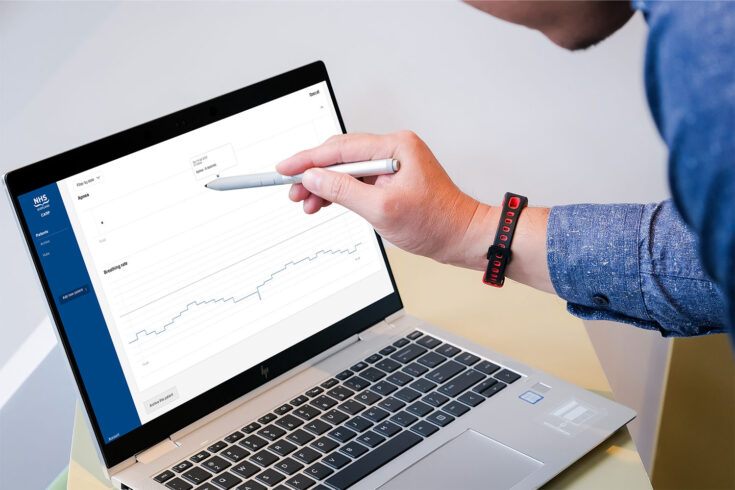Close to nine million people in England suffer from one of five long-term conditions:
- asthma
- chronic obstructive pulmonary disease (COPD)
- heart failure
- type two diabetes
- chronic kidney disease.
COPD is the second most common cause of hospital admissions.
Each time a COPD patient is admitted to hospital with an exacerbation, a flare up of the condition, their health deteriorates. But, these exacerbations are preventable through good management of the patient’s condition.
That’s what Lenus Health, a digital healthcare platform was created to do.
About the project
Lenus Health is the brainchild of digital transformation consultancy Storm ID and respiratory clinical team at NHS Greater Glasgow & Clyde.
Lenus Health enables people with severe COPD and their care teams to take a proactive and preventative approach to managing the disease. The benefits to patients and hospitals using the platform are considerable.
Paul McGinness, co-founder and director at Storm ID, explained:
Hospital admissions are distressing for the patient, the disease gets worse each time, and it’s expensive for the NHS. Each visit costs around £8,500 as it can take four to five days to stabilise the patient.
Promising trial results
In 2018, Storm ID received UK Research and Innovation Digital Health Technology Catalyst funding, part of the Medicines Manufacturing challenge, for the two-year project.
Working with Queen Elizabeth University Hospital in Glasgow, the organisation spent a year conducting in-depth research with patients and clinicians. In the second year of the project it trialled the technology. The results were significant:
- 28% reduction in emergency admissions
- 38% reduction in hospital bed days.
This saved the NHS more than £8,500 per trial patient.
Lenus Health uses data from several sources:
- medical devices used by patients
- wearables
- patients’ daily symptoms diaries.
It is about to conduct a clinical trial to assess the use of artificial intelligence (AI) to analyse this data and provide personalised risk scores for patients around mortality and re-admission. This can then be acted upon by care teams.
Impacts of the project
The project has been so successful it is now being rolled out across Scotland, with interest building in the rest of the UK and from abroad. Trials are also underway using the platform to manage other chronic conditions and to support outpatient appointments. The platform has also been awarded an NHS AI in Health and Care Award.
McGinness said:
Clinicians have a 360, real-time view of what is happening with the patient and access to their full medical history. They can see if there are some worrying trends in the data and message the patient to tell them to get in touch or take their rescue pack medication as they are likely to have an exacerbation otherwise.

